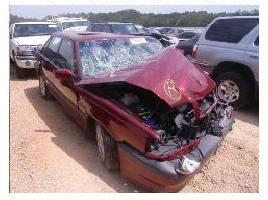Ask an Attorney a Question for FREE!
Interpretation of the Policy
Concept that allows you to interpret the policy against the insurance company
Interpretation of the Policy is a concept is not spelled out in your auto policy. In fact, most insurance adjusters do not know much about it.
The reason is simple. An auto policy is really a contract.

You entered into a contract with your insurance company so they would pay for any losses or accidents on your behalf (restricted by the terms outlined in the policy) for an exchange of payment (premium).
Because of these terms, all policies are contracts.
All contracts’ concepts and terms are governed by contract law.
In contract law, an ambiguous term or contradictory terms must be interpreted against the drafter of the contract (the party that wrote the contract).
In every instance, insurance companies will always write their own policies.
I have never seen a person write their own policy and have the insurance company CEO or president sign it.
Because of this, the policy terms must be crystal clear.
If a term is up for discussion or it can have different interpretations, then it is ambiguous and must be construed to benefit you (the insured).

Interpretation of the Policy concept is not discussed with you because it benefits you.
For example, if your policy extends coverage to your auto and its equipment, and it is silent to any other exclusion, do not let your insurance adjuster tell you that things not bolted to your car are not part of its equipment.
The word equipment means spare tires, keys, jack, some tools, etc.
The fact that the insurance company did not define the word equipment, and did not exclude these items forces them to cover any damage to these parts.
Since they are writing the policy, the Interpretation of the Policy concept will protect you.
What often happens is that they exclude coverage somewhere for something, but then they give coverage back. For example, the policy will read:
We will not cover for any damage to sound or stereo systems.But then three pages later it reads:
We will cover damage to your radio, electronics, CD or player only in the case of theft.
Your adjuster will probably quote the first clause and call it a denial of coverage.

You could show them the second clause. Which one wins? The second clause because the Interpretation of the Policy concept will make sure the policy is read against the drafter.
The second reason that they need to rule in your favor when interpreting the policy is the fact that you are an insured.
The carrier has an affirmative duty to act in good faith and to do whatever is necessary to act in the benefit of their client. Therefore, if there is any ambiguity, the adjuster must go in favor of the insured.
This is another reason to carefully read your policy!
Click below for an explanation of insurance coverages and terms:
Automobile Liability Insurance or Liability Page 1
Automobile Liability Insurance or Liability Page 2
Automobile Medical Payments or Personal Injury Protection (PIP) Page 1
Automobile Medical Payments or Personal Injury Protection (PIP) Page 2
Collision Coverage (Protection Against Loss to the Auto) Page 1
Collision Coverage (Protection Against Loss to the Auto) Page 2
Comprehensive Coverage (Protection Against Loss to the Auto) Page 1
Comprehensive Coverage (Protection Against Loss to the Auto) Page 2
Under or Uninsured Motorist Property Damage (UMPD) Page 1
Under or Uninsured Motorist Property Damage (UMPD) Page 2
Under or Uninsured Motorist Bodily Injury (UMBI)
Rental Reimbursement or Loss of Use Coverage Page 1
Rental Reimbursement or Loss of Use Coverage Page 2
Restoration Coverage
Towing and/or Road Assistance Coverage (Emergency Packages)
Insurance Clauses and Terms
Overview
Actual Cash Value or ACV
Additional Insurance Clause
Cancellation of Coverage Clause
Choice of Law Clause
Forum Selection Clause
Duty to Cooperate Clause
Duty to Report Losses Clause
Financial Responsibility Clause
Insurable Interest Concept
Interpretation of the Policy Concept
Mandatory Arbitration Clause
Mitigation of Damages Clause
Non Duplication of Benefits Clause
Proof of Loss Clause
Promissory Estoppel Concept
Reservation of Rights Concept
Reasonable and Necessary Clause
Right of Appraisal Clause
Right of Settlement Clause
Rights of Counsel Concept
Subrogation of Rights Clause Part I
Subrogation of Rights Clause Part II
Statute of Limitations Concept
Replacement Cost Value
Restoration Coverage
Transfer of Benefits Clause
|
For a Free Review of Your Case
Please Call (866) 878-2432 |


